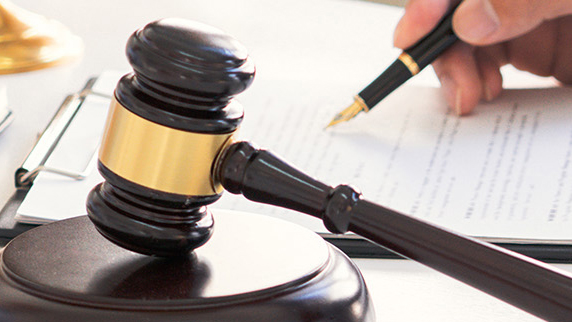
The coronavirus pandemic, the likes of which the United States had not seen for more than a century, prompted lawmakers in numerous states to enact broad protections for workers. As of September 30, 2020, a dozen states adopted regulations and issued executive orders that establish compensability presumptions for workers. An additional nine states enacted laws that create a presumption in favor of various categories of workers according to the National Council on Compensation Insurance1. The Insurance Information Institute estimates that COVID-19-related worker illnesses will add $81.5 billion to the workers compensation system2.
Our Public Affairs team lobbies for limitations
Our Public Affairs team engaged with policymakers dating back to March during the early days of the onslaught of workers compensation-related legislative proposals and executive actions. The team leveraged its memberships in various trade associations and chambers of commerce to lobby for reasonable and narrowly tailored compensability presumptions. Several key limitations sought by Public Affairs and allies include: (1) adoption or enactment of a disputable, rather than conclusive, presumption of compensability; (2) application of the law or order to a limited scope of workers; (3) limitation on the effectiveness of the laws and orders to a finite and reasonable timeframe; and (4) mandatory positive COVID-19 test result rather than mere exposure to the coronavirus. Most of the orders, rules proposed, and statutes enacted in the various states adhere to these tenets.
State spotlight – California
On March 6, 2020, California Governor Gavin Newsom was among the first chief executives to issue an executive order3 that created a rebuttable presumption of injury and compensability for employees who work outside the home and test positive for COVID-19. Newsom’s initial order was problematic to employers for several reasons. First, it shifted the burden from employees who were obligated to substantiate their claims that an injury occurred in the course and scope of employment to employers now tasked with overcoming a presumption that an injury occurred while on the job. Second, the order was remarkable for its scope, applying to a broad spectrum of employees who were not able to work from home, not just “essential workers,” such as those specifically identified in the Federal government’s list of “essential critical infrastructure workers”4 that Newsom referenced in his March 19 shelter-in-place order. Finally, the order provided employers only 30 days from the submission of a claim form to determine compensability. Governor Newsom issued the order while the legislature was temporarily adjourned, thus there were no committee hearings and limited opportunity to negotiate the language. The order applied to injuries sustained beginning March 19, 2020, and expired after 60 days — on July 6 — which set the stage for legislative action.
Legislators extend and expand California governor’s order
California lawmakers returned to Sacramento on July 27 after several members and staff tested positive for COVID-19 and safety-related precautions led to an unscheduled three-month recess. Limited access to members and staff in the capitol created unique and unprecedented challenges for lobbyists to engage and influence proposals. Senate Bill 1159 was one of several workers compensation legislative proposals that sought to expand benefits for employees who test positive for COVID-19 beyond Governor Newsom’s March 6 executive order5 . On August 1, nearly 100 organizations coauthored a letter opposing an earlier version of SB 1159 that would have extended a disputable presumption in favor of compensability until July 2024.
On September 17, 2020, Governor Newsom signed SB 1159, which codifies his earlier executive order and establishes a presumption of work causation for any positive COVID-19 test within 14 days of working for essential workers, including first responders, peace officers, and healthcare providers. A third section of SB 1159 extends the disputable presumption to all workers where an “outbreak” of four employees at work sites with fewer than 100 employees or 4 percent of employees at work sites with more than 100 workers test positive for COVID-19 within 14 days. The latter two presumptions may be triggered during the period commencing July 6, 2020, and extends until January 1, 2023.
New Jersey Governor Murphy approves WC presumption bill
On September 14, 2020, New Jersey Governor Phil Murphy signed Senate Bill (SB) 2380 into law. SB 2380 creates a rebuttable presumption of workers compensation coverage for COVID-19 cases contracted by “essential employees” during a public health emergency declared by an executive order of the governor. The law is effective immediately and retroactive to March 9, 2020. The law defines “essential employee” as “an employee in the public or private sector who during a state of emergency:”
- is a public safety worker or first responder, including any fire, police, or other emergency responders;
- is involved in providing medical and other healthcare services, emergency transportation, social services, and other care services, including services provided in healthcare facilities, residential facilities, or homes;
- performs functions which involve physical proximity to members of the public and are essential to the public’s health, safety, and welfare, including transportation services, hotel and other residential services, financial services, and the production, preparation, storage, sale, and distribution of essential goods such as food, beverages, medicine, fuel, and supplies for conducting essential business and work at home; or
- is any other employee deemed an essential employee by the public authority declaring the state of emergency.
What should employers and insurers expect in 2021?
Unless and until the country controls the spread of COVID-19, legislators will continue expanding benefits for frontline workers who will face greater exposure to the coronavirus as cities and counties reopen. More states, especially ones saddled with budget deficits from economic downturns, will push to ensure workers compensation responds for employees exposed to the coronavirus. Future challenges will include retroactivity of the presumption, scope of workers eligible for expanded benefits, and the duration of compensability presumptions enacted.
1 State activity: COVID-19 WC Compensability presumptions
2 COVID-19 and Workers Compensation: Modeling Potential Impacts
3 Executive order N-62-20
4 Advisory memorandum on identification of essential critical infrastructure workers during COVID-19 response
5 Executive order N-33-20
Featured insights
This website is general in nature and is provided as a courtesy to you. Information is accurate to the best of Helmsman Management Services’ knowledge, but companies and individuals should not rely on it to prevent and mitigate all risks as an explanation of coverage or benefits under a policy or service contract. Consult your professional advisor regarding your particular facts and circumstance. By citing external authorities or linking to other websites, Helmsman Management Services is not endorsing them.





